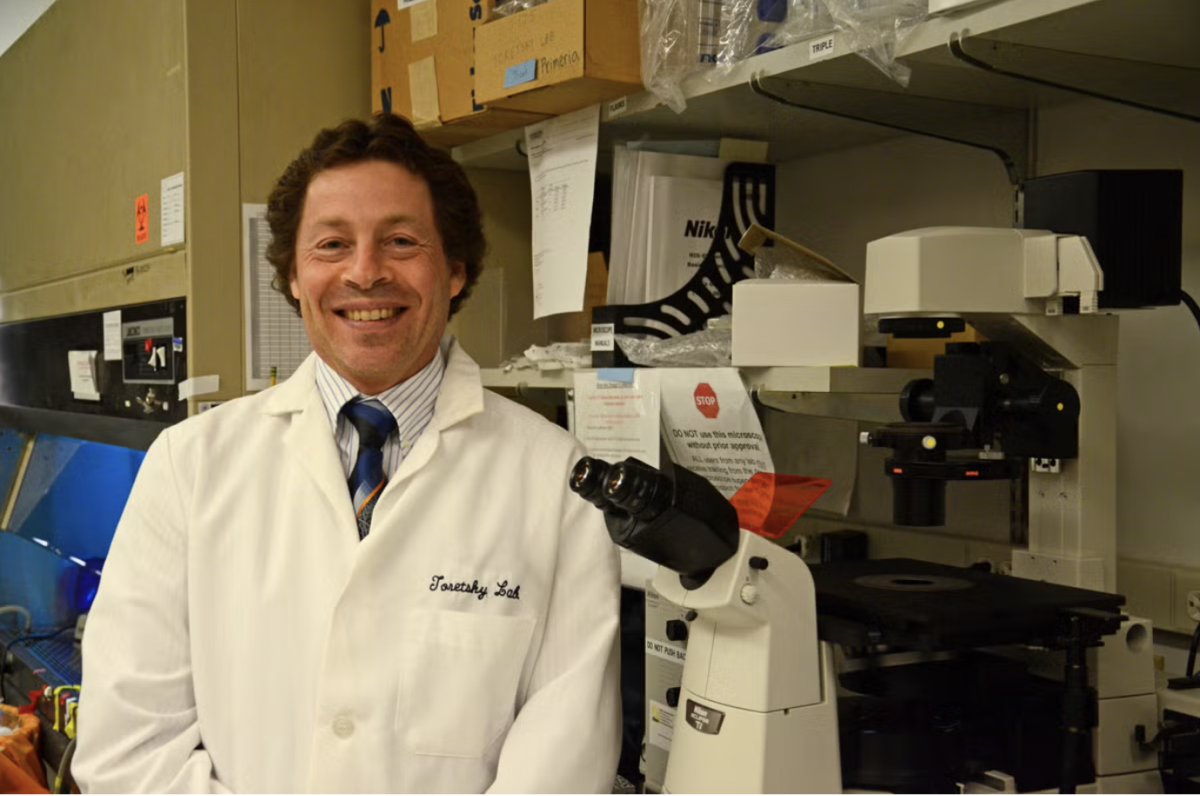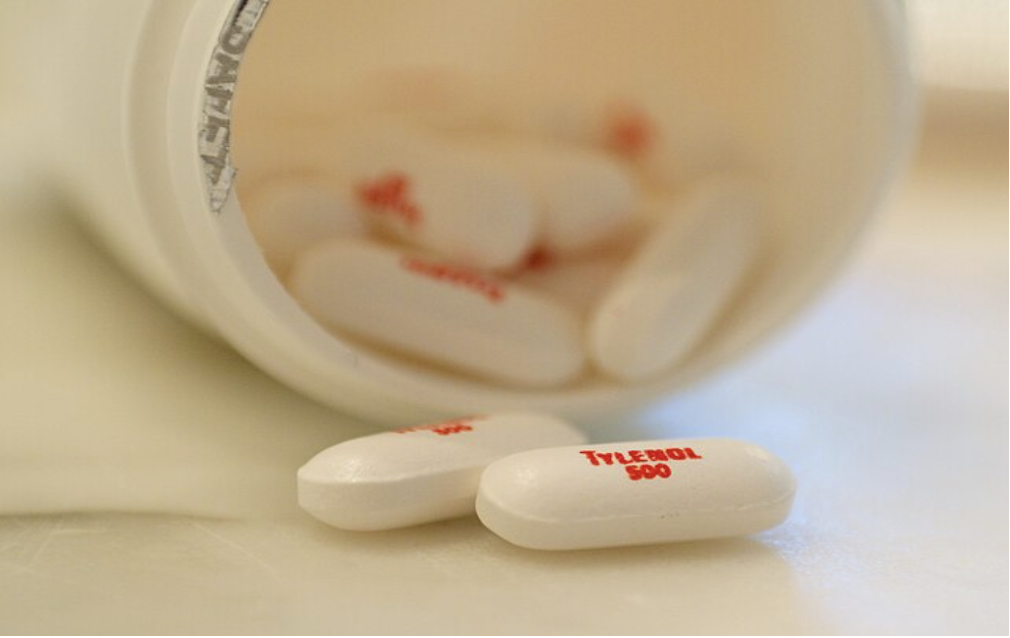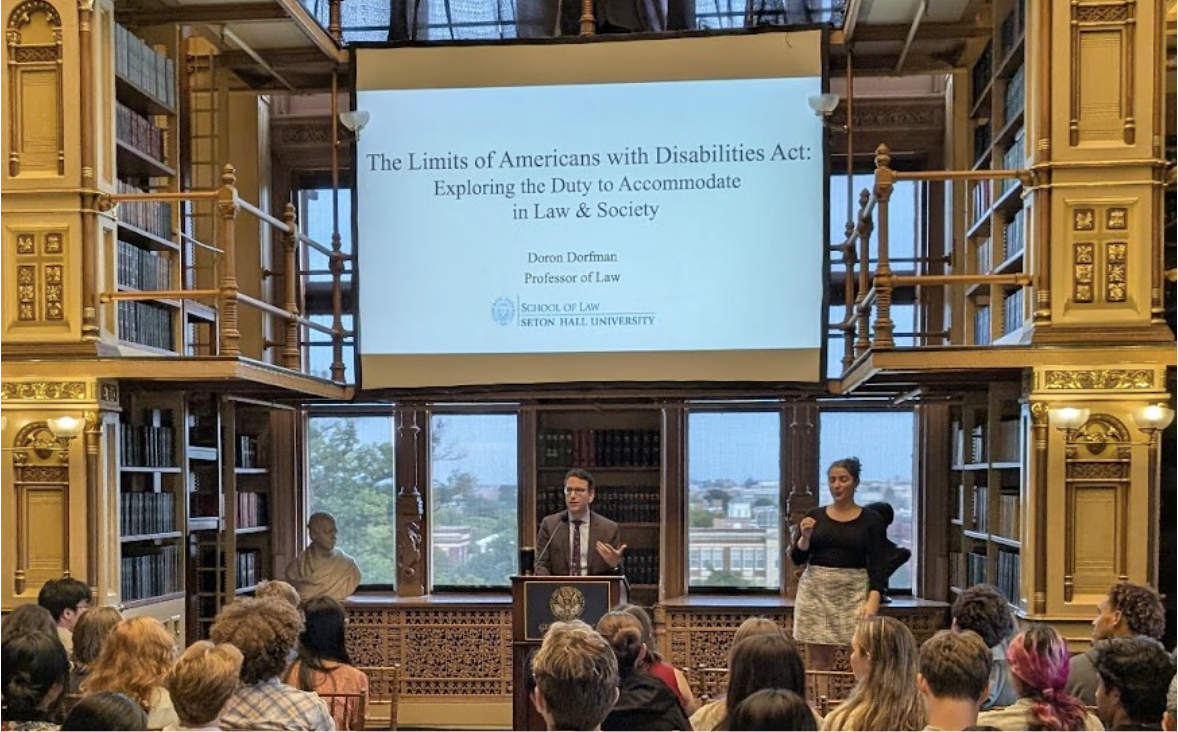Dr. Jeffrey Toretsky — chief of pediatric, adolescent and young adult hematology and oncology at the MedStar Georgetown University Hospital and professor of oncology at the Georgetown School of Medicine — was formally named the inaugural Hyundai Hope on Wheels endowed chair in pediatric oncology at a Sept. 7 ceremony in Riggs Library.
Hyundai has donated more than $7 million to pediatric cancer research at Georgetown since 2004, and the Hyundai Hope on Wheels endowed chair position will provide ongoing support for faculty and their research programs. The award follows Toretsky’s decades of contribution to the field of pediatric oncology and comes amid federal funding cuts to scientific research.
Dr. Akyut Üren, a professor in the department of oncology and a colleague of Toretsky’s, said Hyundai’s philanthropy will continue to be significant in MedStar Georgetown’s efforts to progress pediatric cancer research.
“It is especially valuable these days because the research funding is really going down,” Üren told The Hoya. “In these difficult times, having a private company funding pediatric cancer research is really important. It is not just making a little contribution to an ongoing project, they’re making things happen.”
Üren added that Hyundai’s contributions will allow them to pursue more resource-intensive projects that otherwise might not have received support from faculty.
“The amount of money they are providing with these grants is really significant,” Üren said. “Now you can really think outside the box and you can try more risky projects that everybody wants to try, and usually you get the bigger return, or more important findings because you try those things that nobody has tried before.”
Toretsky is an expert on Ewing sarcoma, a rare pediatric cancer that develops in the bones or the soft tissue that surrounds them. The strategy for combating Ewing sarcoma varies from other cancers; for example, Toretsky’s research specifically targets the EWS-FLI1 protein, which is essential for tumor cell survival. Torestky’s team discovered TK216, a small molecule that blocks the EWS-FLI1 protein, and recently conducted the first in-human clinical trial to test the molecule’s efficacy in targeting Ewing sarcoma.
Torestky said his experiences with patients and care teams and the research gaps in Ewing sarcoma therapies have kept him deeply committed to the field since his undergraduate years.
“It was a combination of these wonderful relationships you have with patients, and the opportunity to use research to have an impact on survival,” Toretsky told The Hoya. “I don’t disparage any other areas of medicine, but everybody who I’ve met in this space has this amazing level of care for patients.”
Toretsky said he appreciates the support he has received from teachers, students and patients, as well as the critical role of Hyundai and Georgetown’s leadership.
“I talked about gratitude — gratitude to all of my teachers and students and everybody that I’ve had along the way, and the patients who I’ve taken care of,” Toretsky said. “My gratitude to Hyundai and Kevin Riley, who’s an enthusiastic Georgetown alum who made all of this happen, and also my gratitude to the leadership at Georgetown.”
Dr. Anton Wellstein, a professor of oncology who runs a molecular and cell biology research lab, said Torestsky — whom he mentored — is fiercely determined to advance pediatric cancer research.
“Dr. Toretsky is a force of nature and of unlimited enthusiasm in his pursuit of Ewing sarcoma causes and cures,” Wellstein wrote to The Hoya. “He reaches far beyond pediatric cancer, diving into mechanisms that drive cancer cells and finding ways to interrupt their transformation. This is a well-deserved recognition that will inspire him even further.”
Toretsky said that as he works toward finding effective treatments for Ewing sarcoma, he remains driven by the patients he has cared for and the stories they have shared, recalling one particular encounter that inspires his research.
“The patient said to me, ‘I know that I’m not going to live long enough to get this drug that you’re developing, but it gives me a great deal of comfort to know that you’re working on it,’” Toretsky said. “That’s probably one of the most profound things I’ve ever heard from a patient.”




